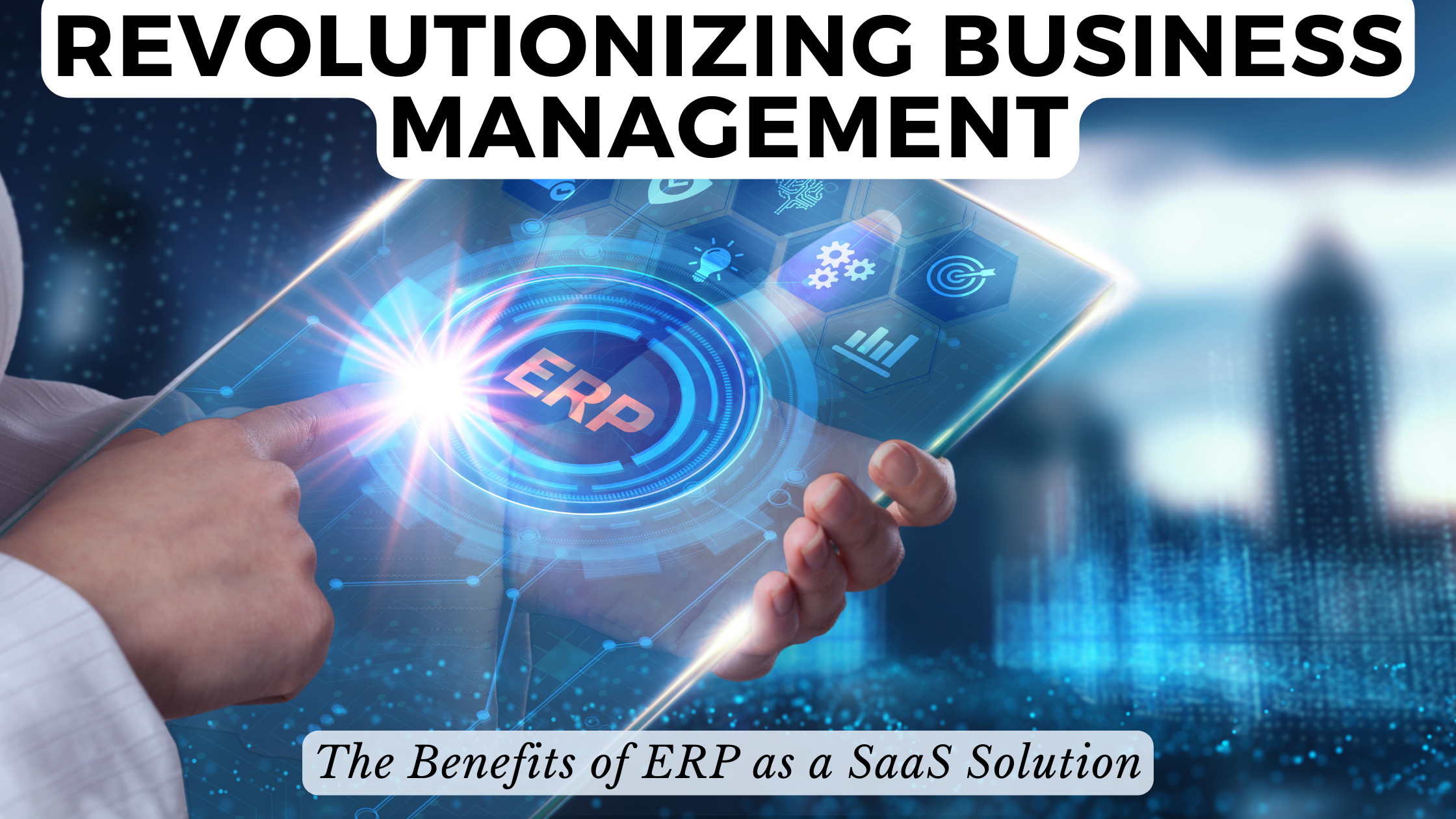Revolutionizing Business Management: The Benefits of ERP as a SaaS Solution
- Expense Management Software Credit Cards Investing Business Solutions


Revolutionizing Business Management: The Benefits of ERP as a SaaS Solution
In the dynamic landscape of business management, enterprises are continually seeking innovative solutions to streamline operations and enhance efficiency. One such transformative approach is the adoption of Enterprise Resource Planning (ERP) as a Software as a Service (SaaS) solution. This article explores the myriad benefits of ERP as a SaaS solution, revolutionizing how businesses manage their processes and resources.
Understanding ERP as a SaaS Solution
Enterprise Resource Planning (ERP): ERP is a comprehensive software suite designed to integrate and streamline various business processes, including finance, human resources, supply chain, and customer relationship management. Traditionally, ERP systems were on-premise, requiring significant infrastructure and maintenance.
Software as a Service (SaaS): SaaS, on the other hand, delivers software applications over the internet on a subscription basis. SaaS eliminates the need for complex installations and allows users to access the software from anywhere with an internet connection.
Benefits of ERP as a SaaS Solution
1. Cost-Effective Implementation:
- Traditional ERP: On-premise ERP systems often involve substantial upfront costs for hardware, software licenses, and implementation.
- ERP as SaaS: SaaS models offer a subscription-based pricing structure, reducing initial investment. Users pay for the services they consume, making it more cost-effective for businesses of all sizes.
2. Accessibility and Flexibility:
- Traditional ERP: On-premise solutions may restrict accessibility, requiring users to be in the office or connected to the corporate network.
- ERP as SaaS: SaaS ERP provides the flexibility to access the system from any location with an internet connection. This is especially advantageous in the era of remote work and global business operations.
3. Scalability and Updates:
- Traditional ERP: Scaling an on-premise system can be complex, often requiring additional hardware and resources.
- ERP as SaaS: SaaS solutions offer seamless scalability. Businesses can adjust their subscription based on their evolving needs. Updates and maintenance are handled by the SaaS provider, ensuring the system is always up-to-date.
4. Rapid Deployment:
- Traditional ERP: Implementing on-premise ERP systems can be a lengthy process, delaying the benefits of the system.
- ERP as SaaS: SaaS ERP solutions are known for their quick deployment. Businesses can start using the system almost immediately after subscribing, accelerating time-to-value.
5. Enhanced Collaboration:
- Traditional ERP: On-premise systems may face challenges in facilitating collaboration, especially in distributed teams.
- ERP as SaaS: SaaS ERP promotes collaboration by providing real-time access to data for all authorized users. This fosters improved communication and decision-making across the organization.
Exploring Relevant SaaS Products in the ERP Sphere
As businesses embark on the journey of ERP as a SaaS solution, it’s essential to consider complementary tools that enhance the overall management experience. Here are some noteworthy SaaS products in the ERP ecosystem:
1. NetSuite
- NetSuite, an Oracle company, offers a cloud-based ERP solution that encompasses various business functions. From financial management to supply chain and beyond, NetSuite provides a comprehensive suite for modern enterprises.
2. SAP Business ByDesign
- SAP Business ByDesign is a cloud-based ERP solution designed for small and medium-sized businesses. It integrates various business processes, providing real-time insights and fostering growth.
3. Workday
- Workday is known for its cloud-based enterprise software, including ERP solutions for finance and human resources. Its user-friendly interface and powerful capabilities make it a popular choice.
4. Acumatica
- Acumatica delivers cloud-based ERP solutions with a focus on flexibility and scalability. It caters to businesses of all sizes and industries, offering modules for diverse operational needs.
5. Odoo
- Odoo provides an open-source ERP platform that can be deployed on-premise or in the cloud. It covers a wide range of applications, allowing businesses to customize their ERP experience.
Conclusion: Transforming Business Management with ERP as a SaaS Solution
In conclusion, the adoption of ERP as a SaaS solution marks a paradigm shift in how businesses approach resource planning and management. The benefits, ranging from cost-effectiveness to enhanced collaboration, position SaaS ERP as a catalyst for organizational growth. As businesses navigate this transformative landscape, leveraging Subscribed.FYI ensures they can access exclusive deals and manage their SaaS stack effectively.
As businesses explore the world of ERP as a SaaS solution, Subscribed.FYI emerges as a valuable companion. By signing up for free, users can unlock exclusive deals on a myriad of SaaS tools, including those tailored to ERP and business management. Subscribed.FYI simplifies subscription management, allowing users to track expenses and discover savings on a variety of essential tools.
Relevant Links:








